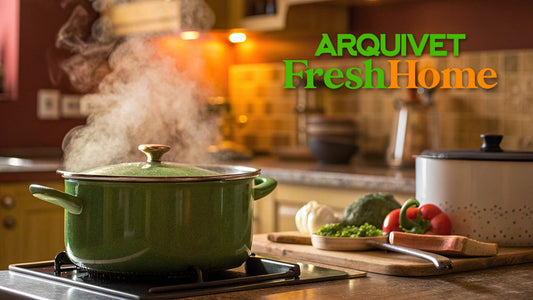
The importance of feed in our dog's skin and hair problems
Nutrition is everything for our little one's health. Proper nutrition for our pet can prevent serious skin problems, such as allergies or dermatitis, and also for their coat—making it stronger and shinier. Dry food is, par excellence, the staple food in our pet's diet, so it's vitally important. pay attention to what product is provided to you, what are the quantities of the ingredients in its composition and what is the manufacturing process like.
In this article, we'll focus on why dog food is so important for the health of our dog's skin and coat. We'll explain the most common skin problems in dogs, as well as hair problems in dogs and how to improve them through feeding them food for dogs with skin problems. Read on to find out more!
Skin problems in dogs
Skin problems in dogs often cause that our little one doesn't stop scratching, but it can also cause pain with open ulcers, changes in skin pigmentation, the appearance of nodules, lumps, and spots, redness, inflammation, and more. Some of the most common skin problems in dogs are insect bite allergy dermatitis, atopic dermatitis, fungal dermatitis, malassezia dermatitis, mange, seborrhea, pyoderma, folliculitis, pododermatitis, neoplasia, and lesions. Hormonal and behavioral problems are also responsible for many skin conditions in dogs.
Hair problems in dogs
When we talk about hair problems in dogs, we must keep in mind that they are often related to skin problems in dogs as well. This is due to inflammation and the dog's persistent scratching. areas with no hair or very little hairDiseases such as mange, diabetes, and skin allergies are also responsible for hair loss, as is the case with humans. It's important to keep in mind that dogs also shed twice a year, usually when temperatures are high. This is completely normal and there's no need to worry. Another reason for hair loss is stress. In these situations, we can find cases of alopecia areata—specific areas of the body that are hairless, usually the size of a coin. To find a solution for this condition, we must identify the cause of the stress in the animal.
How to take care of a dog's health
The importance of skin and coat problems in our dogs is significant, as some diseases or disorders can become complicated if not given the necessary attention. Therefore, The first thing we should do is consult a veterinarian to determine if the problem was caused by internal factors, such as a nutritional deficiency, kidney failure, or food allergy; or if the problem is rooted in external factors, such as parasites or hot spots due to trauma, among others.
Food for dogs with skin problems
Give to your pet food for dogs with skin problems is one of the Most recommended solutions when the problem is caused by a food allergyThese foods are made with a higher amount of Omega 3 and 6 fatty acids. In addition to relieving itchy skin, they provide the hair with the necessary nutrients to keep it strong and shiny—and they also help promote brain development. Omega 3 and 6 acids also help combat excess weight and help dogs recover properly from viral or bacterial infections. You should also keep in mind that dog food for skin problems can vary depending on the type of allergy, and that these vary from animal to animal. Pets may have allergies or intolerances to the most common proteins and foods such as beef, chicken, pork, wheat, eggs, and dairy. In that case, we will need to look for healthy dog food that doesn't contain the ingredients that are causing harm.
The choice of food is essential to ensure your dog's well-being. Keep in mind that allergies can also be caused by reactions to the product's chemical components, such as additives and flavorings. In this case, it's best to opt for natural foods. If your dogs have grain allergies, you can also find natural varieties such as grain-free foods or grain free.
Healthy dog food: nutrients to maintain healthy skin and coat
Although we've already mentioned some of the most recommended ingredients for maintaining healthy skin and coat, in this section we'll delve deeper into them. These are the ingredients that a dog food for dogs with skin and coat problems should contain:
- Fatty acids: Primarily omega-3 and omega-6 fatty acids. These play a crucial role in hydration and the growth of the skin barrier. They also help keep your dog's coat soft and shiny and relieve itchy skin.
- Quality proteins: It's not just the quantity of protein that matters when it comes to feed, but also the quality. Generally, proteins should make up 30% to 35% of the diet for healthy skin and coat, but they must also be of high quality. This will prevent color loss, thinning of the coat, and hair loss.
- Minerals and vitaminsThe most recommended minerals for healthy skin and hair are zinc and biotin, as well as vitamin A, B complex, and vitamin C.
Remember that the higher the quality of the food, the better it will generally be for your pet. Therefore, opt for optimal, healthy dog food, such as premium dog foods.


